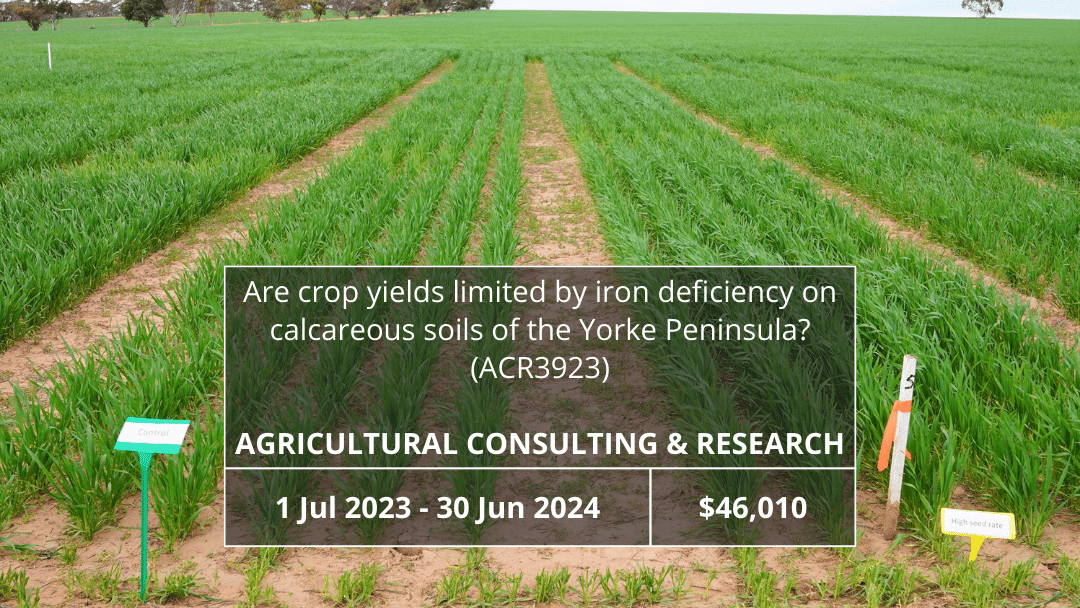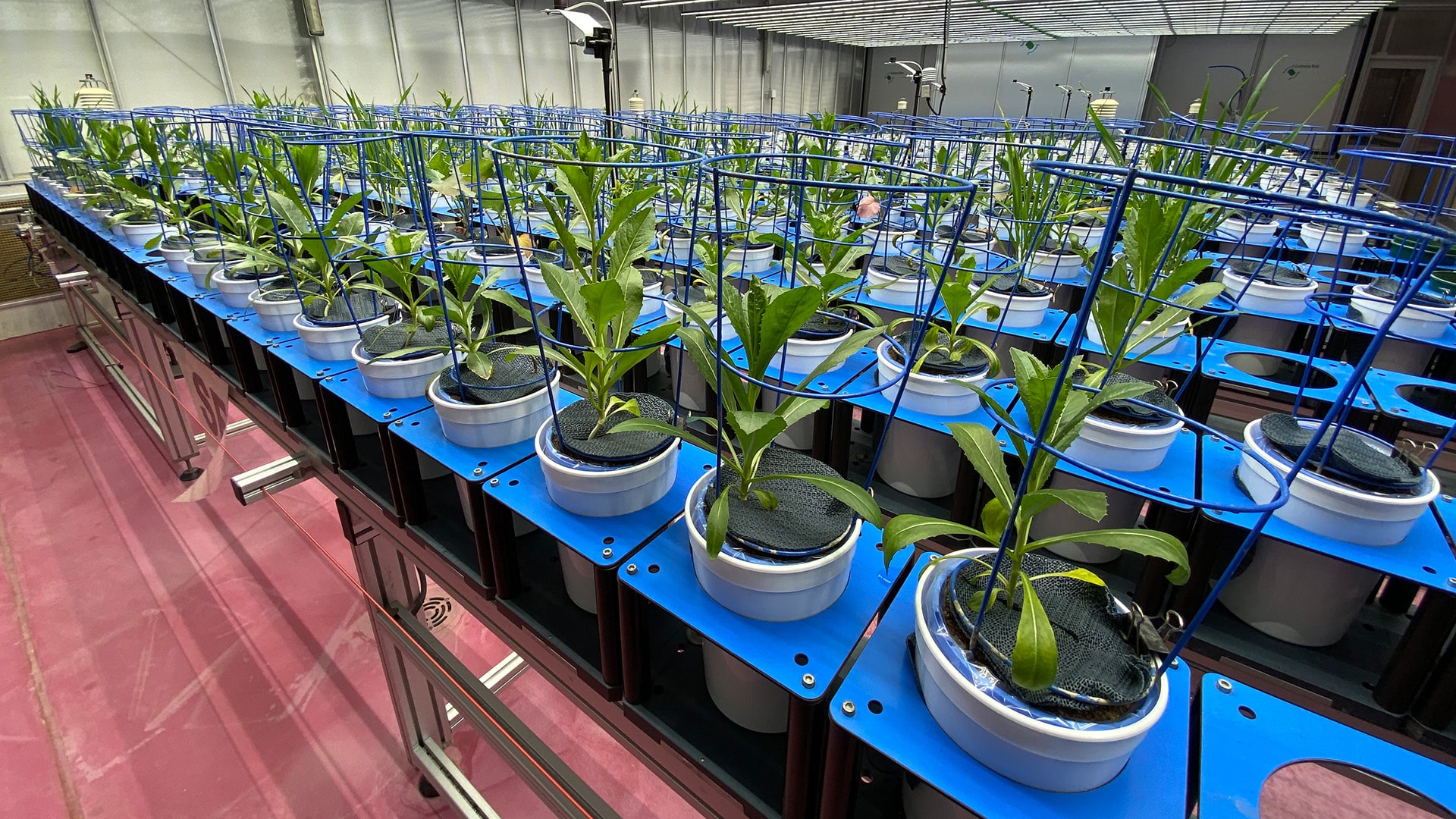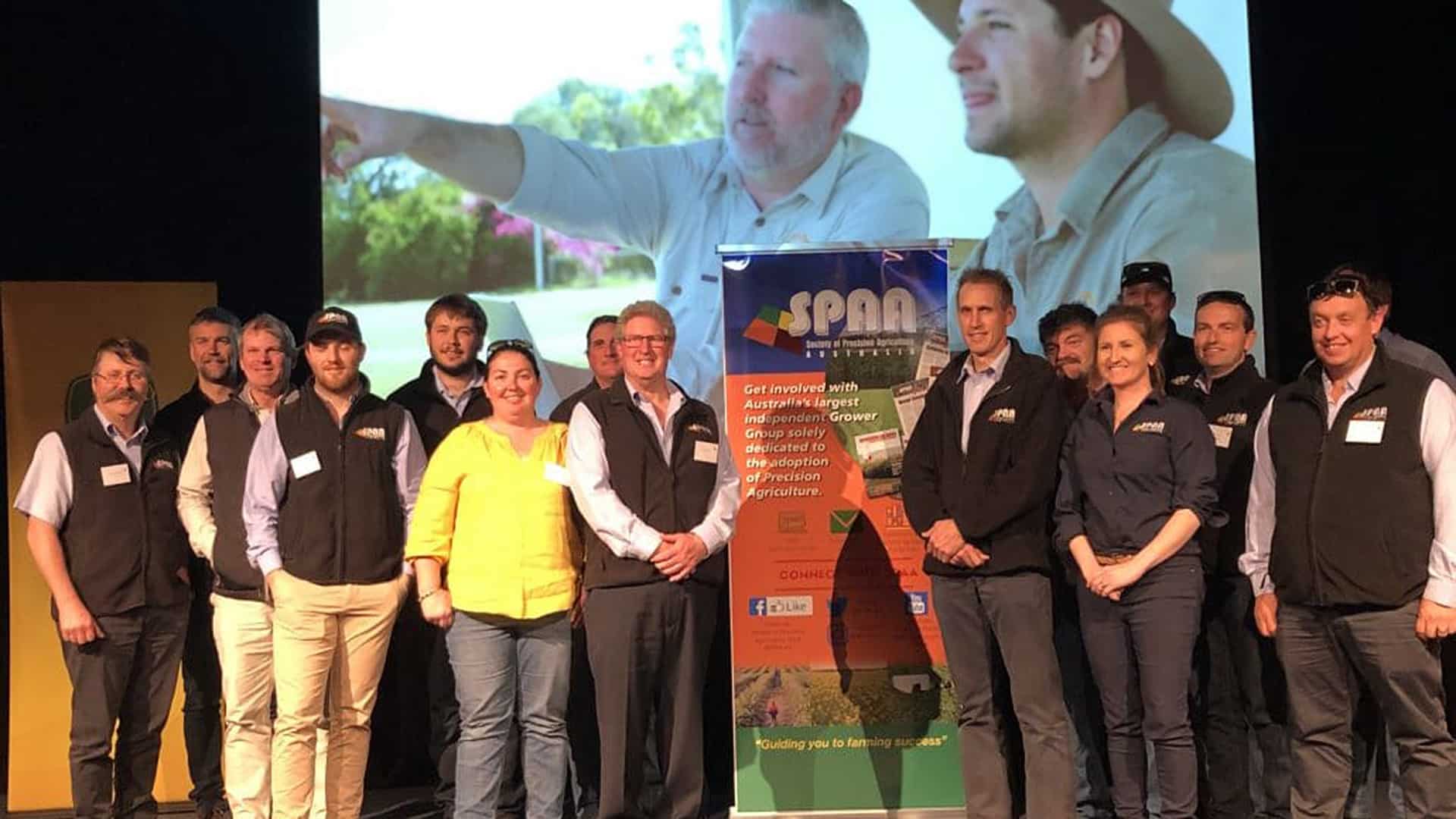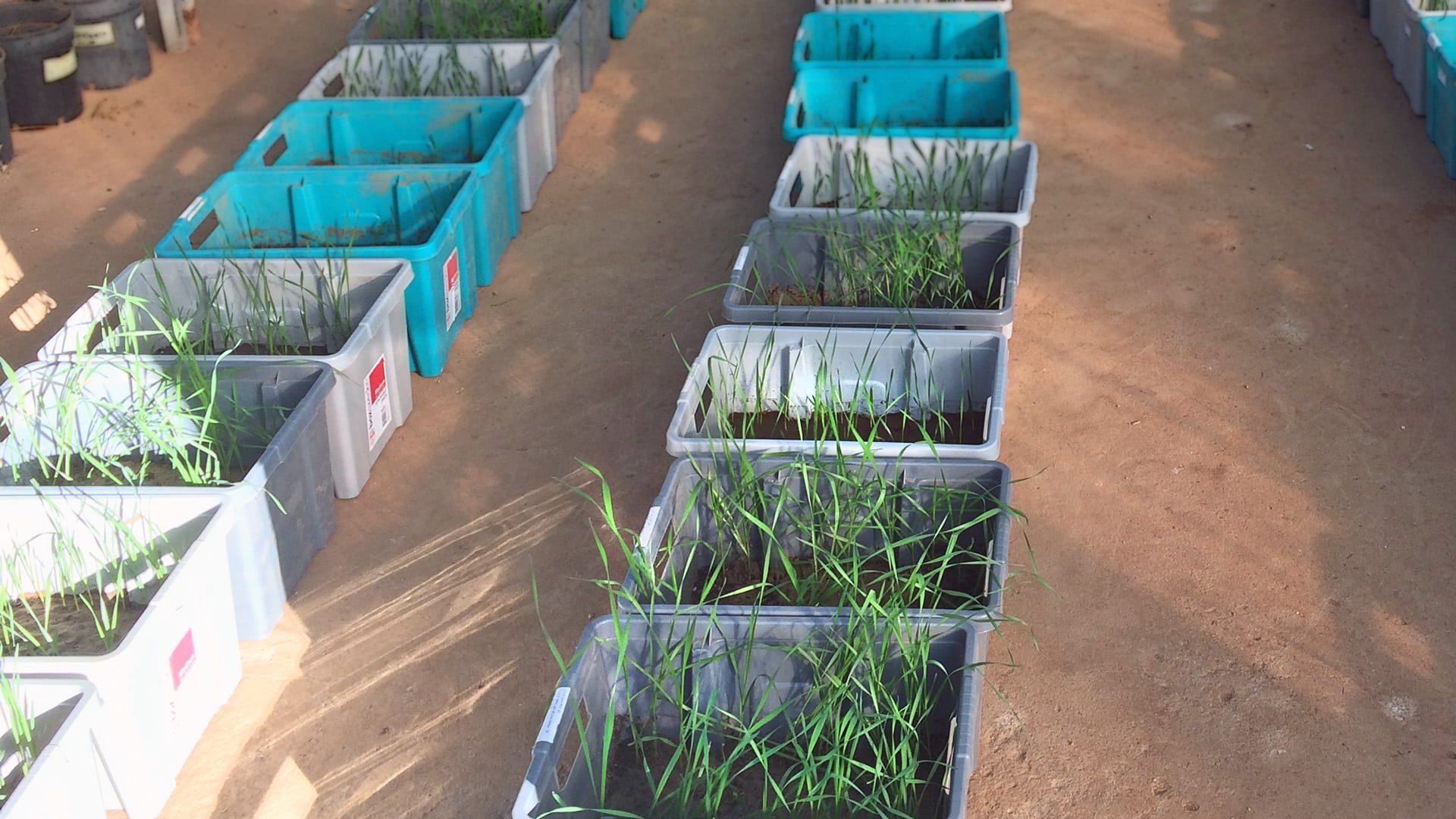START
FINISH

Summary
Advancements in iron fertiliser formulations have delivered significant yield gains on calcareous soil types in the South East of South Australia and this provides an opportunity to investigate the degree of iron deficiency in other regions where these soil types are prevalent such as the Mid North and Yorke Peninsula.
Project Participants
Stefan Schmitt, Agricultural Consulting and Research
The research
Advancements in iron fertiliser formulations have delivered significant yield gains on calcareous soil types in the South East of South Australia and this provides an opportunity to investigate the degree of iron deficiency in other regions where these soil types are prevalent such as the Mid North and Yorke Peninsula.
Funding
$46,010
More information
Stefan Schmitt
T: 0418 524 754
E: [email protected]



